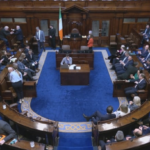Care home providers are raising alarms that tax increases and rising staffing costs outlined in the recent Budget could lead to closures across the sector. The increase in National Insurance contributions paid by employers, alongside higher minimum wage requirements, is placing significant financial strain on care homes.
While the sector welcomed an additional £600 million in funding for local authorities designated for adult and children’s social care, many providers argue that this amount is insufficient to offset the rising costs associated with wage increases and the increased National Insurance contributions.
The Liberal Democrats have urged the government to exempt the social care sector from the National Insurance rise. They noted that the Chancellor allocated extra funding for the NHS and other public sector organizations to mitigate the impact of the tax increase; however, most care providers operate as private entities and will not benefit from this funding.
Care England, the organization representing adult social care providers, has warned that without additional support, the sector is in “unprecedented danger,” and the closure of unviable services could become inevitable. The organization highlighted that the £600 million funding is merely “a drop in the ocean” compared to the estimated £2.4 billion increase in costs tied to wage hikes and National Insurance contributions.
Mike Padgham, who manages five residential and nursing homes in North Yorkshire, reported that his annual wage bill currently stands at £5.3 million. He estimates that the National Insurance increase will add an extra £5,000 to his costs each month, with the minimum wage rise contributing an additional £25,000. Most of his residents are funded by local authorities, and Padgham indicated that he may have to request higher fees to cover the increased expenses.
However, care providers have long contended that local councils, facing their own financial pressures, do not allocate enough funding to cover the true costs of care. Padgham, who also chairs the Independent Care Group, stated that the labour-intensive nature of the sector makes the rise in employee costs particularly challenging.
“For many providers, this situation places existential pressure on their operations and could drive some out of business unless it is matched by additional funding for care commissioners, which appears unlikely,” Padgham noted. He also expressed skepticism that the £600 million would have any meaningful impact once distributed among the 152 local authorities and children’s services.
Liberal Democrat leader Sir Ed Davey warned that the National Insurance increase “risks worsening the NHS crisis by hiking costs for care providers and pushing some to the brink.” He added, “This just shows that yet again the government seems to have forgotten about care.”
















